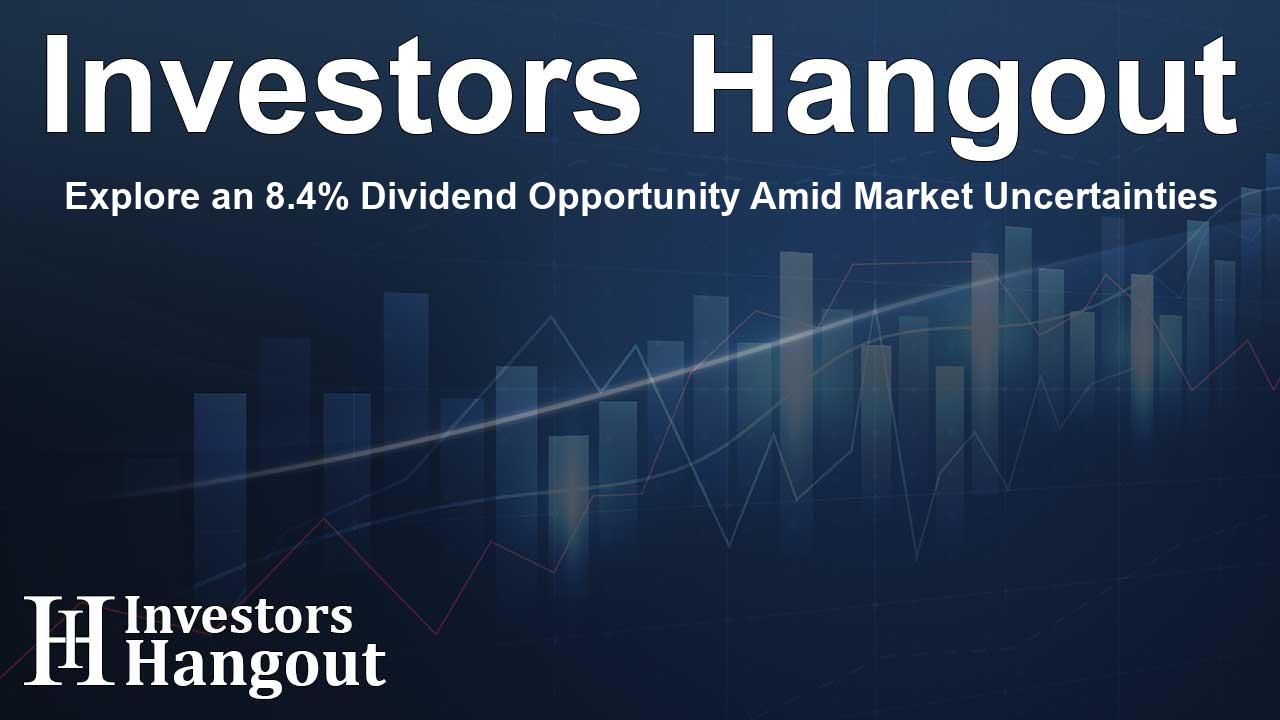Explore an 8.4% Dividend Opportunity Amid Market Uncertainties

Understanding the Current Market Dynamics
In the ever-shifting landscape of the financial markets, the discussion around the actions of key figures continues to generate interest. Investors are left pondering whether the current sentiment will remain favorable or take a sharp turn. In this context, let’s explore how we can effectively navigate uncertainties and secure reasonable returns while looking for dividend opportunities.
Long-Term Independence of the Federal Reserve
Past events have played a significant role in shaping investors' sentiments. The independence of the Federal Reserve remains a cornerstone of its function. It allows for sound monetary policies insulated from political pressures. However, speculation around leadership can introduce volatility in the markets, as recent history indicates. The whispers about replacing leadership often stir unease among investors, each time leaving them concerned about potential market implications.
Despite these pressures, the long-term stability of Federal Reserve operations suggests that immediate concerns might not impact market performance extensively. Yet, as seen previously, even short-term fears can catalyze significant reactions in stock prices. Awareness of these sentiments can guide investors in developing robust strategies.
Volatility and Market Responses
The market has seen fluctuations paired with talks of new economic influence strategies. This reflects the market's current perception of risk, with fluctuations in fear gauges being telling indicators. Noteworthy is how these forecasts can influence trading behaviors and sentiment. When the market perceives reduced risk, it can result in a rally that may not fully account for underlying economic realities.
Attention to how historical patterns shape current responses can lead to preventative strategies. As investors gauge the level of hesitance from influential market players, they can better anticipate movements, which may depend on the stock market's performance.
Dividend Opportunities with Closed-End Funds
Currently, it’s crucial to explore opportunities that balance returns with risks. Closed-end funds (CEFs), particularly those employing options strategies, present attractive dividend yields that can be significantly higher than traditional indexes. For instance, the Nuveen funds have caught the attention of dividend seekers with yields around or above 7%, creating opportunities for intelligent, risk-managed investments.
These strategies allow for profitable transaction premiums that can be redirected towards substantial dividends, making them appealing in today's less volatile environment.
Key Funds to Consider for Higher Yields
Among the noteworthy options are the Nuveen Dow 30 Dynamic Overwrite Fund (NYSE: DIAX) and its counterparts, which provide exposure to major U.S. equities while utilizing covered-call strategies. What sets these funds apart is their ability to maintain higher yields than general index funds, making them viable for long-term investors seeking consistent income streams.
Particularly, DIAX stands out in market conditions characterized by stagnated volatility. The potential for enhanced yields can be more appealing than ever, encouraging astute investors to take advantage of current market discrepancies.
Why DIAX Stands Out
DIAX has demonstrated resilience against underperformance, suggesting a potential for contrarian opportunities among well-informed investors. When comparing its portfolio to the Dow Jones Industrial Average, the fund has showcased variations in performance that can be leveraged for gains during times of uncertainty.
Investors may find that this CEF is particularly well-positioned for growth should volatility increase. The additional recording of discounted valuations also enhances its appeal, making it a relevant choice in diversified portfolios.
Assessing Unique Opportunities in a Volatile Market
As seen from previous market behaviors, strategic choices in fund management, particularly with options, tend to lead to favorable outcomes during turmoil. The continued interest in DIAX signals the potential for both capital preservation and growth amidst economic shifts.
Frequently Asked Questions
What is DIAX and why should I consider it?
DIAX is a closed-end fund that utilizes covered-call strategies to generate income, offering a 8.4% dividend opportunity amid market uncertainties.
How do closed-end funds differ from traditional funds?
CEFs can trade at discounts to their net asset value, allowing investors to potentially acquire shares at a lower price than their actual value.
What are the risks associated with volatile markets?
In volatile markets, uncertainties may lead to abrupt changes in stock values, impacting investor confidence and creating potential fluctuations in income streams.
Are dividends guaranteed in closed-end funds?
While many CEFs aim to provide consistent dividends, payments can be influenced by market performance and management strategies, thus are not guaranteed.
How can one determine the best time to invest in DIAX?
Monitoring market conditions, understanding the fund's performance relative to economic indicators, and aligning investment goals can help in assessing the right timing.
About The Author
Contact Henry Turner privately here. Or send an email with ATTN: Henry Turner as the subject to contact@investorshangout.com.
About Investors Hangout
Investors Hangout is a leading online stock forum for financial discussion and learning, offering a wide range of free tools and resources. It draws in traders of all levels, who exchange market knowledge, investigate trading tactics, and keep an eye on industry developments in real time. Featuring financial articles, stock message boards, quotes, charts, company profiles, and live news updates. Through cooperative learning and a wealth of informational resources, it helps users from novices creating their first portfolios to experts honing their techniques. Join Investors Hangout today: https://investorshangout.com/
The content of this article is based on factual, publicly available information and does not represent legal, financial, or investment advice. Investors Hangout does not offer financial advice, and the author is not a licensed financial advisor. Consult a qualified advisor before making any financial or investment decisions based on this article. This article should not be considered advice to purchase, sell, or hold any securities or other investments. If any of the material provided here is inaccurate, please contact us for corrections.
